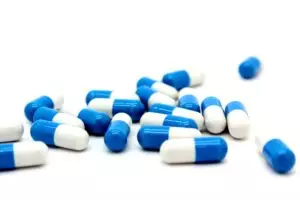Opioid and an opiate are two words that are often thrown around interchangeably. When people reference the drug epidemic sweeping the nation, sometimes they say “opioid epidemic,” and sometimes they say “opiate epidemic.” It’s not always clear that these are two different types of drugs altogether. Understanding the difference between opioids and opiates is key to preventing addiction or treating an existing problem.
So, What is the Difference Between An Opioid and An Opiate?
Opioids refer to both synthetic and natural forms of an opioid. Synthetic opium drugs contain natural opium then altered by the addition of synthetic opioids. Opiates refer to opium drugs found only in nature from the opium poppy plant. Don’t let that fool you, though.
Keep in mind that while all opiates are opioids, not all opioids are opiates. Also, some people make the mistake of thinking that because opiates are less harmful because they’re natural. However, opiates are highly addictive and frequently misused, just like opioids.
Opioids and Opiates: What Drugs Belong to Which Category?
As mentioned above, the difference between opiates and opioids are significant. They both include different kinds of drugs.
What drugs are Opioids?
- Hydrocodone
- Oxycodone, OxyContin, Percocet, or Percodan
- Hydromorphone, or Dilaudid
- Duragesic, or fentanyl
What drugs are Opiates?
- Opium
- Heroin
- Codeine
- Thebaine
- Morphine
Do They Make You Feel Different?
Both kinds of opioids bind to the opioid receptors in the brain. Those are the pain receptors, the reward receptors, and the receptors that control addictive behavior. Although each drug has a variation in its effects, ultimately, the feeling is quite similar.
When someone used opioids or opiates, they’re looking to alleviate pain. These drugs temporarily lessen pain and often induce a euphoric, calm feeling. These feelings are temporary and only worsen your naturally existing condition.
Although these drugs can be prescribed and taken carefully, misuse is a severe risk. It’s easy to fall into toxic drug habits without even realizing you’re doing so. Navigating the differences between opioids and opiates will help to educate you and prevent addiction.
Symptoms of Opioid and Opiate Addiction
Although it’s important to understand the differences between opiate and opioid addiction, the signs, and symptoms of addiction are essentially the same. To reiterate, there will be variations within each drug and frequency of use.
There are many signs one can look out for when it comes to opiate and opioid addiction. Spotting these symptoms early on can prevent fatal consequences and overdose. Do not feel ashamed if you notice these symptoms within yourself.
Being honest with yourself is the first step in recovery. We’re telling you it’s okay to find yourself in a position where you realize that you’re not okay. What’s important is recognizing the warning signs and taking that first step on the road to recovery.
The following symptoms are the most common:
Mood Symptoms:
- Mood swings
- Depression
- Anxiety
- Temporary euphoric mood
- Irritability
Behavioral Symptoms:
- Forging prescriptions for opiates
- Stealing narcotics from friends and family
- Robbing pharmacies and other medication dispensaries
- Not fulfilling important obligations/responsibilities
- Decreased performance in your career or school
- Preoccupation with obtaining, using, and recovering from the usage of opiates
- Lying to others to cover the amount of drug taken
- Withdrawing from once-pleasurable activities
- Social isolation
- Restlessness
- Lethargy
Physical Symptoms:
- Fatigue
- Pain relief
- Respiratory depression
- Sedation
- Muscle spasms
- Vomiting
- Insomnia
- Constipation
- Itching
- Nausea
- Vomiting
- Sweating
- Seizures
Psychological symptoms:
- Addiction
- Memory problems
- Hallucinations
- Delusions
- Paranoia
- Worsening of mental health
- A decrease in emotional well-being
- Prevalent symptoms of mental illness
Symptoms of Opioid and Opiate Overdose
An overdose of opioids or opiate calls for immediate emergency medical treatment. If you or someone you love has overdosed on opioids, call 911 immediately. Recognizing these symptoms as soon as possible is key to preventing a fatal overdose.
Symptoms of an overdose include:
- unresponsive (can’t wake)
- slow, erratic (irregular) breathing, or no breathing at all
- slow, erratic pulse, or no pulse
- vomiting
- loss of consciousness (passing out)
- constricted (small) pupils
Don’t wait any longer to get help. You or a loved one can begin to change your life today.
Beginning Treatment for Opioid and Opiate Addiction
We like to emphasize that the treatment of each individual is unique. Depending on their circumstances and needs, the program will vary in structure. However, at the core, our treatment programs all provide the same quality care.
Treatment begins with an assessment. The goal of the assessment is to gain a thorough understanding of the patient. This will help our staff develop a treatment plan that best matches the patient’s needs. One of our clinicians will ask questions to understand nearly every part of a patient’s life.
Common assessment questions include:
- How long has someone been using drugs?
- What other medications are being taken?
- Are there special social or financial circumstances or needs? • Is there a family history of addiction?
- Are there other mental or chronic health problems?
After the assessment, a complete physical examination of the individual is next. This allows our medical staff to understand what current state the patient is at. This includes finding other common conditions (physical or mental) related to addiction, which may alter the treatment program given to the patient.
Types of Opiate and Opioid Addiction Treatment
The severity and length of your opioid or opiate addiction will influence what kind of treatment program will work best. Treatment options may include medical detox, inpatient treatment, outpatient treatment, or a level somewhere in between, such as partial hospitalization or intensive outpatient.
You’ll work together with our dedicated staff to find the best treatment for your needs. Keep reading to learn more about the different kinds of treatment for opioid and opiate addiction.
Inpatient Rehab/Residential Treatment for Opiate and Opioid Addiction
Severe addictions typically call for inpatient (residential) rehab. This type of treatment offers the highest level of care with around-the-clock care. The patient will reside at the facility following a structured program.
Our treatment programs are far more than just therapy and medical care. We’ll incorporate less traditional approaches, such as holistic care and music therapy. We believe in treating the patient as a whole, not just the addiction.
If you have trouble controlling the intense cravings for opiates or opioids, residential treatment can make a huge difference. Inpatient rehab teaches our patients to live without opiate or opioid drugs, developing strong coping mechanisms and recovery skills through individual and 12-step group programs.
Our residential treatment for opioid or opiate addiction may include:
-
- 24-hour nursing supervision
- Co-occurring disorders treatment
- Medication management, as necessary
- Nutritionally balanced meals
- Individual therapy with an addiction counselor
- Group or 12-step therapy
- Family therapy, as needed
- Alternative therapy options, such as music therapy and holistic care
- Aftercare and discharge planning, such as sober living homes
The minimum length of an inpatient program is 28 days, although patients generally choose more extended programs. Inpatient rehab allows people to commit to their well-being and good physical and mental health, relationships, finances, and more. We recommend you to stick with us from the beginning of the journey through the end, from detox to aftercare.
Opioid and Opiate Addiction Outpatient Rehab
Outpatient treatment will offer the same high-quality care as residential treatment. The main difference is the flexibility of the schedule. Patients are not required to live at the facility during treatment.
Outpatient rehab is typically best suited for those that have completed higher levels of care (detox, inpatient, or partial hospitalization). An outpatient program can be a great help when it comes to transitioning back into your regular life.
Outpatient treatment allows our patients to attend to family and job responsibilities while still receiving treatment. People in outpatient rehab programs can learn valuable skills for sobriety while going back to school or work.
Our structured outpatient treatment programs involve regular meetings with an addiction professional and include counseling and therapy sessions. Outpatient treatment generally incorporates:
- Individual counseling
- Group therapy
- Psychiatric counseling for those with anxiety, depression and other co-occurring disorders
- Nutritional counseling
Call Us Today
Drug addiction, particularly opiate and opioid addiction, is very dangerous. Whether it’s you or a loved one struggling, we’d be honored to be a part of your recovery journey. With the right treatment program, recovery is possible.
Not only recovery but a more fulfilling and happier life is the goal at 1st Step Behavioral Health. Call us at (855) 425-4846 or contact us here for more information about available programs.
Jump to a Section
Call (855) 425-4846

